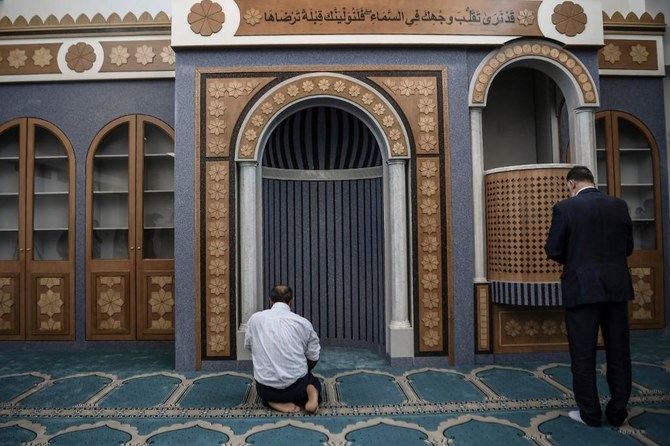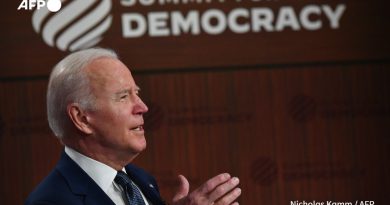OPINION: Who will overtake Mosques in the West formerly financed by Saudi Arabia?
by Ian Hamel (Geneva)
The announcement of this abrupt disengagement sounded like a bomb.
Under the leadership of the new head of the World Islamic League, Mohammed Bin Abdulkarim Al-Issa, a close to the crown prince, Mohammed Bin Salman, Saudi Arabia announced in January that it would separate from the mosques it control in the West.
But five months later, Riyadh did not find takers. And this Saudi disengagement raises fears of a takeover of these mosques by even more radical actors. The mosques in question are coveted by some disreputable states, such as Erdogan’s Turkey, and by non-state groups, such as the Muslim Brotherhood or the Salafist movements.
Last January 19, the Saudi Arabian Mohammed Bin Abdulkarim Al-Issa, passing by on the shores of Lake Geneva, declared in Le Matin dimanche, a Sunday newspaper published in Lausanne, that the Muslim World League (MWL), the religious arm of the kingdom, was disengaging from the Geneva’s Grand Mosque. And that the same arrangements will be made in the West. Saudi Arabia will no longer finance and manage places of worship.
“Everywhere, there will be a local board of directors, set up in coordination with the national authorities. Notably for security reasons,” says the former Saudi Minister of Justice, who is close to Crown Prince Mohammed Bin Salman. The choice of Geneva is not innocent.
In 1961 he opened the Islamic Centre of Geneva (CIG), in the Eaux-Vives district. The following year, Said Ramadan, spokesman of the Brotherhood in Europe, participated in the creation of the Muslim World League (Rabitat al-Alam el-Islami) in Mecca in 1962. But in the 1970s, for obscure reasons, the rupture was effective between the Muslim World League and Said Ramadan. Not only did the Saudis cut him completely off, but they also created a competing place of worship, at Petit-Saconnex, in the neighborhood of the international organizations and the European headquarters of the UN.
A large white marble mosque, inaugurated with pomp and circumstance in 1978 by King Khaled Bin Abdelaziz, in the presence of the President of the Confederation. A prestigious building, endowed with significant financial resources, which has never ceased to marginalize the Islamic Centre of Geneva, now run by Hani Ramadan, one of Said Ramadan’s sons. Mohammed Bin Abdulkarim Al-Issa, elected in 2016 as Secretary General of the MWL, has also headed the Islamic Cultural Foundation of Geneva, which manages the Grand Mosque.
A year later, during his meeting with Pope Francis, the former Saudi Minister of Justice announced that “the true message of Islam in the world is a message of peace, love and respect, and notably the respect, by Muslims, of the laws and institutions of the countries and territories where they live”. In Geneva, he immediately cleaned up the mess, dismissing the director of the Grand Mosque, two imams and the head of security, who were on the “S” list in France.
“It is time to entrust the Geneva Mosque to a representative Swiss board of directors, with an elected president,” says the secretary general of the Muslim World League. He mentions a consultation of local Muslims “with the help of the Swiss authorities”, adding that for security reasons “we must ensure that the mosques are placed in safe hands, obviously. Then we will not intervene anymore”.
The announcement of this abrupt disengagement sounded like a bomb. But the enthusiasm soon faded away. Especially with the coronavirus outbreak and the lockdown. How could the Muslims take charge of the often prestigious places of worship from one day to the next? Geneva’s Grand Mosque employs 17 people. It is not only a place of prayer. It has a library, a school, a sports hall, a morgue.
And how can we prevent other countries or radical movements from trying to take control of all these mosques? Hasni Abidi, Director of the Centre for Studies and Research on the Arab and Mediterranean World, was quick to react, confident in the Swiss press: “Several states have views on the mosque and are following its development, such as Morocco, Turkey and Bosnia. If the withdrawal of the MWL was like offering a gift to another state, it would be a poisoned gift”.
Funding problems are not unique to Geneva, they occur in the same way in other mosques in Europe, in Brussels, Copenhagen, Madrid, Mantes-la-Jolie, Sarajevo. As for France, a secular country, it simply does not have the power to intervene in the constitution of a board of directors that could take over from the Muslim World League in the mosques that the League had controlled until then.
Since the announcement made on January, Mohammed Bin Abdulkarim Al-Issa himself admitted that he has not found any takers. But he would not go back on his decision: Saudi Arabia still intends to disengage. The question is how.
Piece first appeared on Global Watch Analysis.
Ian Hamel is the correspondent for French magazine LePoint, in Switzerland. After studying journalism in Strasbourg, he worked for several media in South America and then in Africa.


